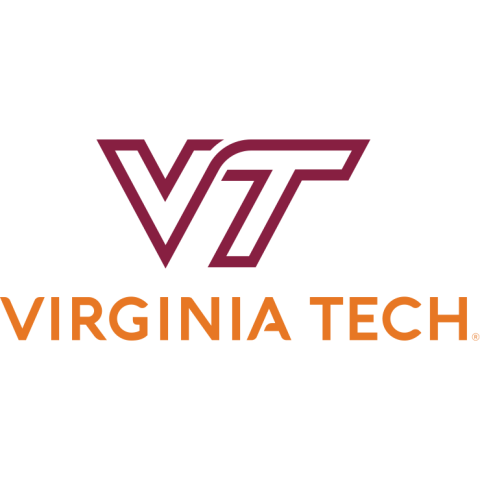
Childcare for students and academics needs resources and relationships
Among married couples with children, 98 per cent had at least one employed parent in 2023, and in 67 per cent of these families both parents were employed, according to the US Bureau of Labor Statistics. Access to quality, affordable and flexible care options is fundamental – yet working parents face rising challenges in a childcare system that is under immense pressure. Moreover, the number one reason women left or changed jobs was the lack of accessible and affordable childcare, research has shown.
Most university campuses in the US do not offer childcare for parenting students, faculty or staff. Only 38 per cent of public institutions and 7 per cent of non-profit institutions have on-campus childcare options that serve students, according to the New America Foundation, a non-partisan think tank in the US. Furthermore, the percentage of public academic institutions that do have childcare services fell from 59 per cent in 2004 to 45 in 2019, according to figures from the Institute for Women’s Policy Research. For-profit institutions almost never report on their on-campus childcare provision.
These numbers could make a case that it is necessary for academic institutions to provide resources to student parents they enrol, faculty they recruit and staff they hire, who are or may become parents. Available resources and opportunities should be designed to ease the stress surrounding access to childcare.
- Balancing books and babies: empowering graduate-student parents
- Supporting parent academics through staff networks
- What can universities do to support academic couples?
Having quality childcare helps universities recruit and retain faculty, staff and students. It enables employees and students to engage actively with their work and studies, knowing that their children are being cared for in a safe, healthy environment. Locally, the challenges of finding affordable, flexible childcare have forced Virginia Tech employees and students to make tough decisions affecting their family’s quality of life. The past fiscal year was particularly stressful as childcare centres and parents anticipated the end of Covid-era funding and increased enrolment costs.
Additionally, we have a significant early childhood education workforce crisis; childcare workers are paid only slightly above minimum wage, meaning they can earn more working in retail or other industries. This sends turnover rates soaring and forces many childcare programmes to operate at less than capacity.
To address both sides of this challenge, Virginia Tech launched the Early Childhood Education Initiative (ECEI) in 2021. ECEI has two aims: first, to serve the university’s parents; and second, to forge relationships with community organisations to both advocate for childcare stabilisation and increase the workforce. To accomplish the latter, we offer information and opportunities to future childcare providers to show them the pathway to becoming an early care and education professional. The key pillars for ECEI – quality, accessible, affordable and flexible – drive our programmes and strategies surrounding childcare.
Resourcing parenting staff, faculty and students
To support staff and students who are parents, institutions first need to find out their childcare needs and concerns, and tailor their offering – whether providing financial assistance, networks or information or building community.
About half of respondents to our 2022 and 2023 surveys who needed or used childcare reported that their care arrangements did not meet their needs in terms of reliability, flexibility or accessibility. The main reasons included a lack of back-up care options, lack of available childcare in the respondent’s area, and the financial strain of childcare.
These survey responses underscored the importance of our work. Our most popular resources for parenting stakeholders include:
- partnerships with local childcare programmes
- discounts towards au pair services
- up-to-date lists of summer camps for school-age children
- premium access to resource site Care.com for finding childcare, adult care, pet care, housekeeping and tutoring
- search for quality care through university and state resources
- monthly lunchtime seminars on caregiving topics such as raising a child with disabilities, school readiness and choosing quality childcare
- confidential office hours with ECEI for all employees to ask peers questions about resources for employees who are parents
- grants for faculty, which are being piloted for dependent care when travelling for work
- social media to connect Virginia Tech employees with colleagues who are also parents
- Caregiving.vt.edu, a comprehensive website of university resources to support caregivers working or studying at Virginia Tech.
Strengthening availability of qualified childcare professionals
To grow the pool of resources and strengthen the childcare workforce, ECEI offers free and accessible professional development to early care and education professionals. Examples include facilitating childcare symposia for educators, collaborating with other organisations training educators, advocating for educator salaries and support systems, and working alongside aligned organisations such as New River Community Foundation First Steps and New River Community College to share with high school students the possible career paths that stem from a qualification in child development or early childhood education.
Of course, all the resources in the world cannot be helpful if our audience doesn’t know about them. ECEI works alongside college communicators, human resources and Work-Life offices at Virginia Tech to make sure resource information is conveyed across our employee and student networks. Examples of resources shared can be seen on our webpage Caregiving.vt.edu, Working Parents of VT Facebook page, resource tables hosted at campus events and through one-on-one consultations with parenting students, faculty and staff.
When we empower and resource parents, we are improving not just the parents’ outcomes but the future for their entire family – and future generations.
Kim Thomason is programme manager for early childhood education initiatives at Virginia Tech and works across the region to expand childcare options.
If you would like advice and insight from academics and university staff delivered direct to your inbox each week, sign up for the Campus newsletter.
Additional Links
For further resources on this topic, see our spotlight collection How to factor family into higher education.




